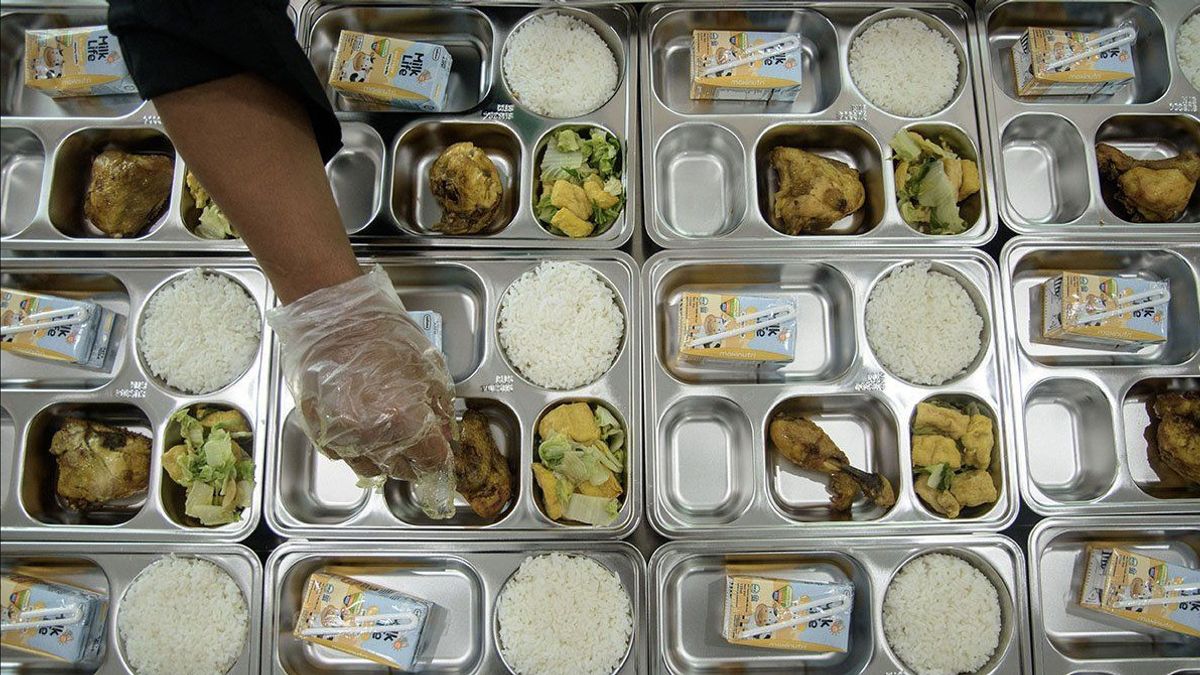Indonesia’s Ministry of Health (Kemenkes) has officially reported over 12,000 cases of food poisoning linked to MBG (Microbial Bacterial Growth) contamination throughout 2025, sparking widespread concern among health authorities and the public. According to the latest data from the Kemenkes Disease Surveillance Division, the majority of cases occurred between June and September, marking a sharp rise compared to the same period last year.
The ministry’s report indicates that the MBG-related poisoning incidents were mostly caused by improper food handling, poor hygiene standards, and storage issues in both urban and rural areas. Several provinces across Java, Sumatra, and Sulawesi recorded high infection rates, prompting emergency responses from local health offices. The Kemenkes has warned the public to be more cautious about consuming ready-to-eat foods, especially those sold in open markets and roadside stalls.
West Java and North Sumatra Report the Highest Number of Cases
Among the affected regions, West Java and North Sumatra have emerged as the epicenters of the MBG poisoning outbreak. West Java alone recorded more than 3,000 confirmed cases, while North Sumatra reported over 2,400. Other provinces such as East Java, South Sulawesi, and Central Kalimantan followed with smaller yet concerning clusters.
Health officials attribute the concentration of cases in these regions to dense population areas, inadequate sanitation infrastructure, and poor monitoring of street food vendors. Dr. Siti Nadia Tarmizi, spokesperson for the Health Ministry, stated that food safety inspections have been intensified in wet markets, school canteens, and public events where mass food consumption is common.
“The majority of the cases are linked to bacterial contamination due to unsafe storage and lack of proper cooking temperatures,” Dr. Tarmizi explained. “We urge local authorities to tighten food supervision and raise public awareness about hygiene practices.”
Health Ministry Implements Emergency Response and Food Safety Campaign
In response to the alarming spike, the Ministry of Health has launched an emergency program focused on identifying and controlling the spread of MBG contamination. This initiative includes rapid testing of food samples, public education campaigns, and the deployment of mobile health units in the most affected areas.
Kemenkes is also collaborating with the National Agency of Drug and Food Control (BPOM) to improve food quality inspections and enforce stricter regulations for food vendors. In schools and public facilities, health officers are distributing educational materials on safe food handling and proper cooking practices.
Dr. Tarmizi emphasized that while MBG poisoning can be severe, most cases are preventable with better public awareness. “We are encouraging communities to prioritize cleanliness—washing hands before meals, storing food properly, and ensuring meat and dairy products are fully cooked,” she added.
Public Awareness and Long-Term Prevention Measures
The MBG poisoning crisis has reignited discussions about Indonesia’s food safety standards and long-term public health preparedness. Experts warn that the recurring outbreaks signal a systemic issue in how food is processed, stored, and distributed, especially in informal markets.
Public health researchers from Universitas Indonesia have suggested that better inter-agency coordination between Kemenkes, BPOM, and local governments is essential to prevent similar outbreaks in the future. They also recommend mandatory food safety training for street vendors and the introduction of affordable sanitation technology in rural regions.
Community participation has become another key component of prevention efforts. Several NGOs and health organizations are partnering with the government to run awareness programs, particularly in schools and community centers. These initiatives aim to educate citizens on identifying early symptoms of food poisoning, such as nausea, vomiting, and abdominal cramps, and on when to seek medical assistance.



